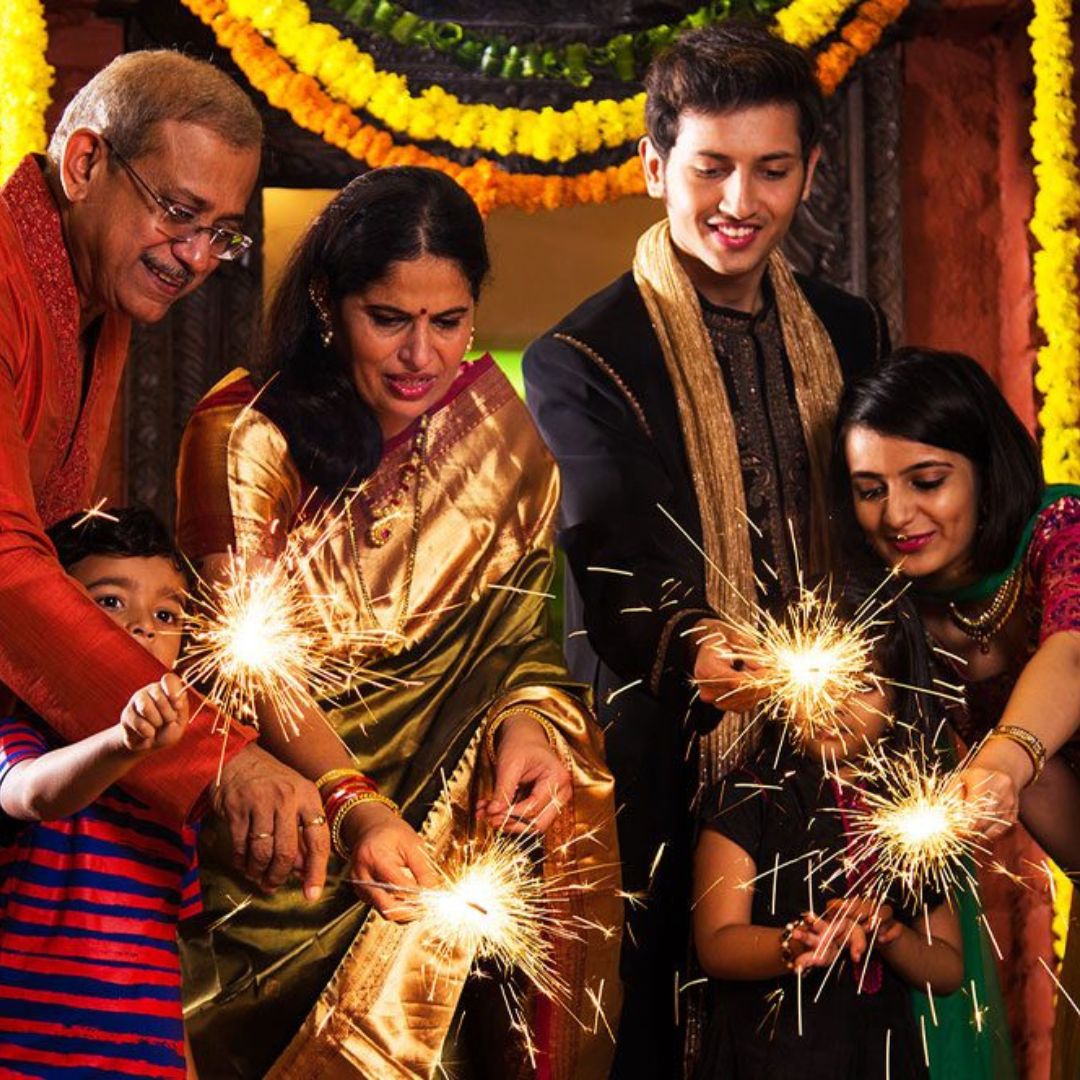Diwali is around the corner and we are gearing up for it. In this blog of The Junior Age, we have put together some unique stories, legends, and celebrations associated with this festival of lights.
Also Read, Dussehra : A Celebration Of Victory!
The Festival Of Lights
Diwali, is a five day festival celebrated by Hindus, Sikhs and Jains across the world. Diwali or Deepavali gets its name from the Sanskrit word Dipavali, which means “row of lights”. Diwali marks the start of the New Year. Diwali is also a symbolic celebration of good triumphing over evil. The festival of lights honours the Hindu goddess of wealth, Lakshmi. People celebrate this festival by lighting little earthen oil lamps and decorating their homes with lights. The lamps and light are said to help Goddess Lakshmi find her way into peoples’ homes, bringing prosperity in the year to come.
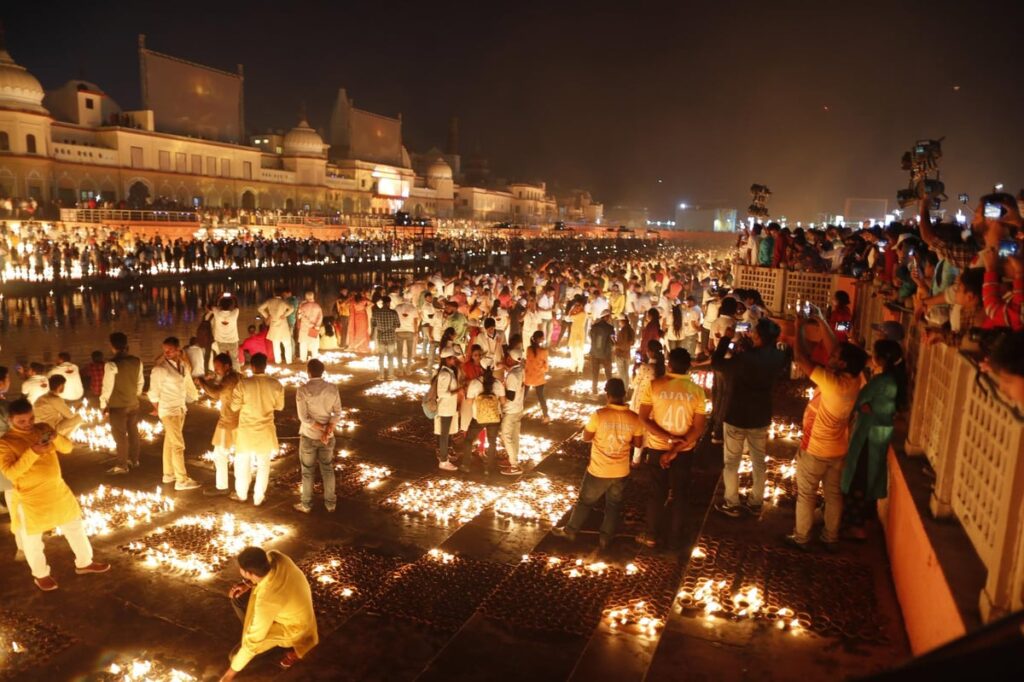
There are many different legends associated with Diwali.
For instance, in Jainism, Diwali marks the Nirvana or spiritual awakening of Lord Mahavira. In Sikhism, Diwali honours the day Guru Hargobind Ji, the sixth Sikh Guru was freed from imprisonment.
Hindus have many beliefs associated with Diwali, based upon where they live. But there’s one common theme: the victory of good over evil.
In northern India, Diwali is a celebration of the day Rama returned to Ayodhya with his wife Sita and his brother Lakshmana after defeating the demon Ravana in Lanka and serving fourteen years of exile. According to legend, when Rama returned to Ayodhya, the people of the city welcomed him by lighting thousands of rows of clay lamps.
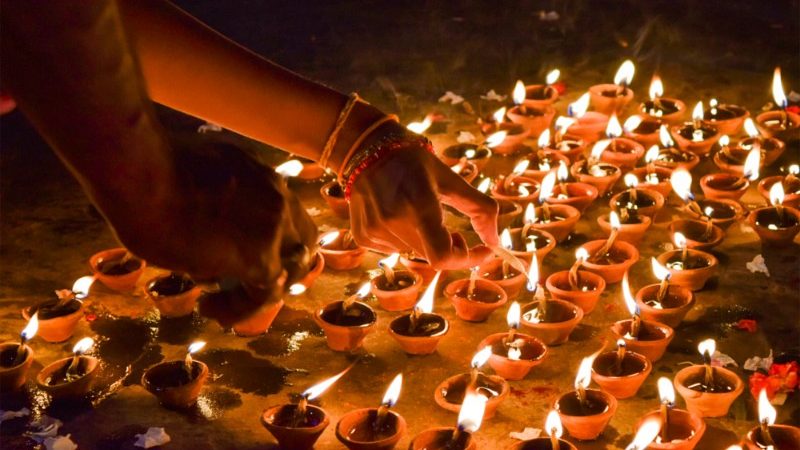
In southern India and even in Nepal, Diwali marks the day that Lord Krishna defeated the demon Narakasura, an evil demon. In western India the festival marks the day that Lord Vishnu, the Preserver (one of the main gods of the Hindu trinity sent the demon King Bali to rule the nether world.
Diwali is Celebrated Over Five Days
Day one: People clean their homes and shop for gold kitchen utensils to help bring good fortune.
Day two: People decorate their homes with clay lamps create design patterns called rangoli on the floor using colored powders or sand.
and Day four: This is the first day of the new year, when friends
Day three: On the main day of the festival, families gather for Lakshmi puja, a prayer to Goddess Lakshmi, followed by yummy feasts and fireworks festivities ( Although fireworks may not be the most eco-friendly).
Day Four: This is the first day of the new year, when friends and relatives visit with gifts and best wishes for the season.
Day five: Brothers visit their married sisters, who welcome them with love and a mouth-watering meal.
Celebrating And Embracing Diverse Diwali Celebrations In India
The festival of lights is an extremely significant and auspicious festival for India. India is a multicultural country and most Indians celebrate Diwali, based on their own beliefs and customs. Almost every region in India has distinctive traditions for celebrating Diwali. However, the triumph of good over evil remains the common belief. Read to find out about the unique ways different cultures celebrate Diwali in India:
Dev Deepavali in Varanasi
Dev Deepavali or Dev Diwali, also known as the festival of gods, is celebrated 15 days after Diwali in Varanasi on a full moon night. On Dev Diwali, millions of diyas are lit on the ghats of Varanasi. It is believed on this day, gods and goddesses come down to Earth to take a bath in the Ganges. Dev Diwali also marks Lord Shiva’s victory over demon Tripurasur.
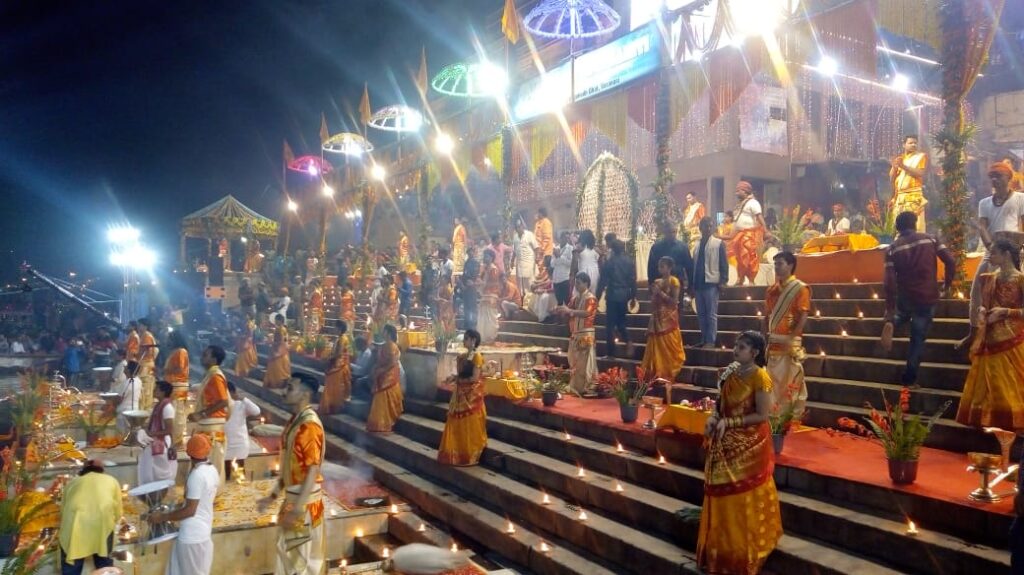
Kali Puja in West Bengal and Assam
In West Bengal and Assam, Diwali is celebrated as Kali Puja. Goddess Kali is worshipped on this day and worshippers offer her flowers, fish, sweets, and meat. While most of India, worships Goddess Lakshmi on Diwali, in these two Indian states, Goddess Kali is worshipped. It is interesting to note that the festival of Kali Puja became popular in Bengal only in the 18th century.
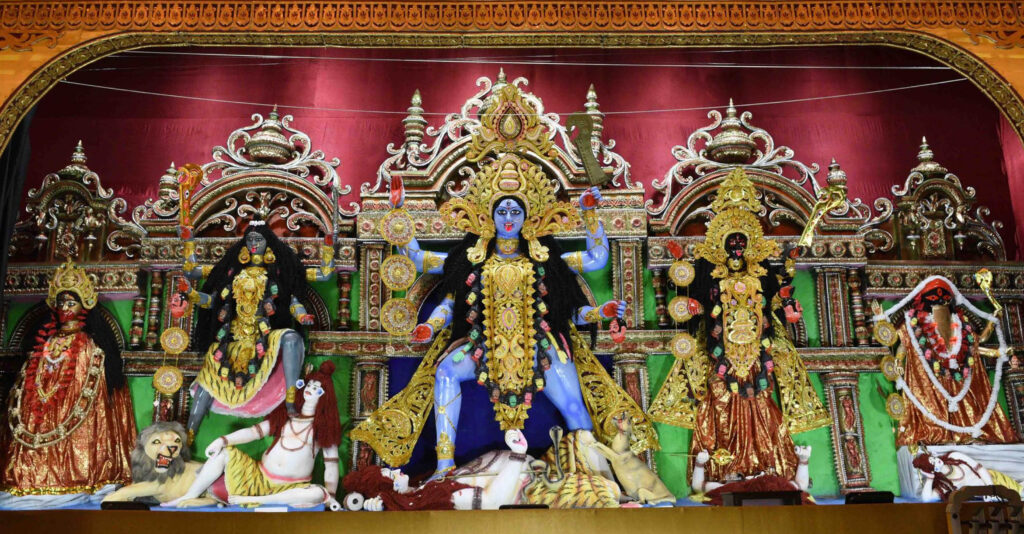
Narka Chaturdashi in Goa
In Goa, Diwali is celebrated as Narka Chaturdashi. On Narka Chaturdashi, locals burn huge effigies of the demon Narakasura made from grass and hay. According to a legend in Goa, the demon Narakasura was the king of Goa. He was very arrogant and troubled people. He was ultimately killed by Lord Krishna.
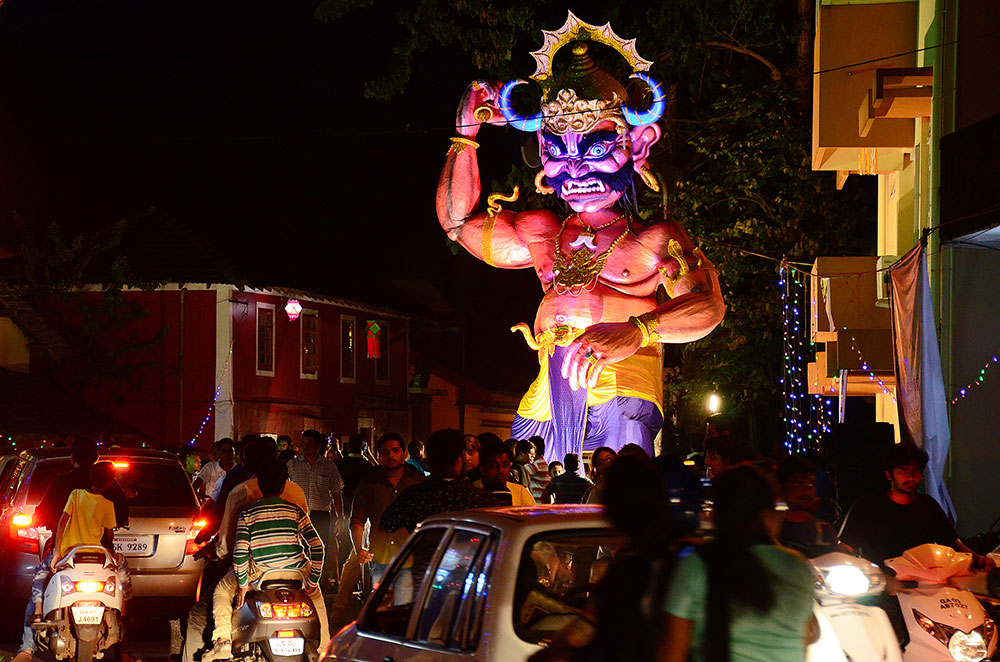
Kaunriya Kathi in Odisha
One of India’s most culturally diverse states, Odi-sha, celebrates Diwali differently. During Kaunriya Kathi, the people of Odisha burn jute sticks to invite their ancestors, who are said to descend from heaven on Diwali. The ancestors are invited to visit them on Diwali, to bless them and their families.
The burning of jute sticks is often accompanied by a prayer. During Diwali, people in Odisha worship Goddess Lakshmi, Lord Ganesha, and Goddess Kali.
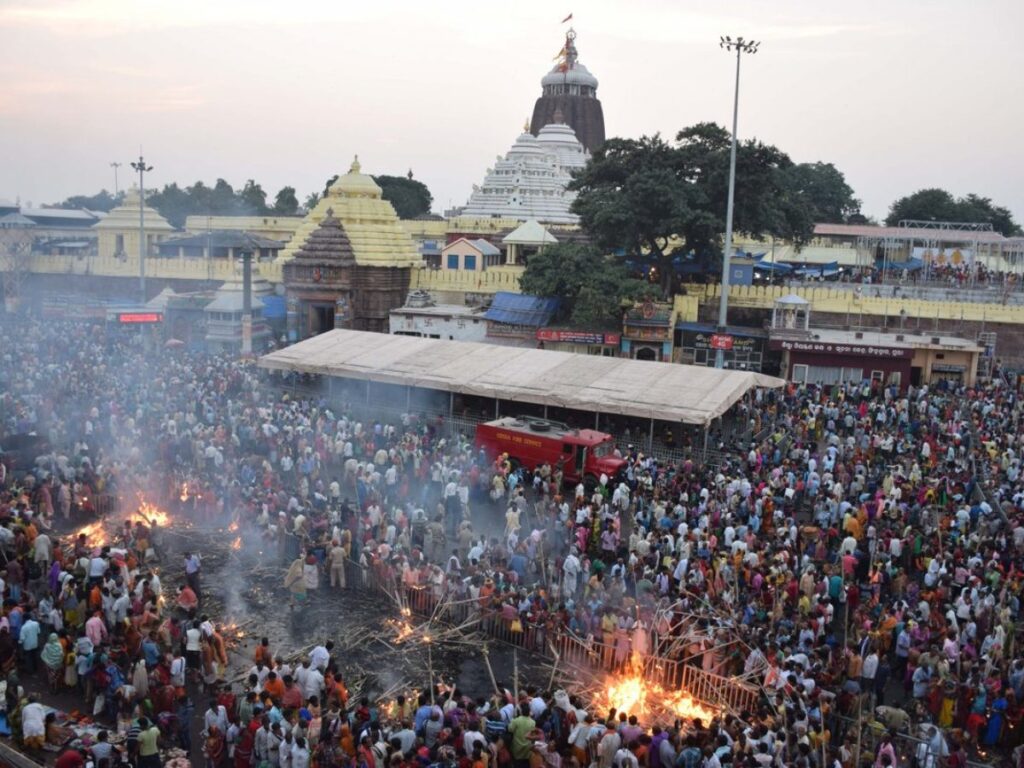
Significance Of Diwali In Sikhism, Jainism, And Buddhism
Sikhism, Jainism and Buddhism are different religions, with their own beautiful traditions, cultures, and customs. The festival of Diwali is celebrated differently by Hindus, Sikhs, Jains, and Buddhists. Each of these religions celebrate Diwali for slightly different reasons.
Bandi Chhor Divas celebrated by Sikhs
Sikhs celebrate Band Chhor Divas on Diwali. Band Chhor Divas or Prisoner Release Day, celebrates the release of the sixth Sikh Guru, Guru Hargobind Sahib in 1619, from a prison in Gwalior. He was held captive by the Mughals. It is believed that Guru Hargobind agreed to be released from prison only if the 52 Hindu princes, who were imprisoned along with him, were allowed to go free. The day is seen as a triumph of right over wrong and a tribute to the Guru who saved the lives of 52 men without violence. On Diwali, the Golden Temple in Amritsar is illuminated with Diyas.
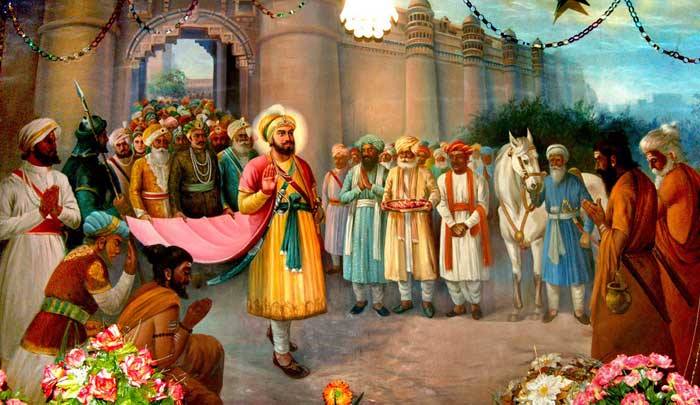
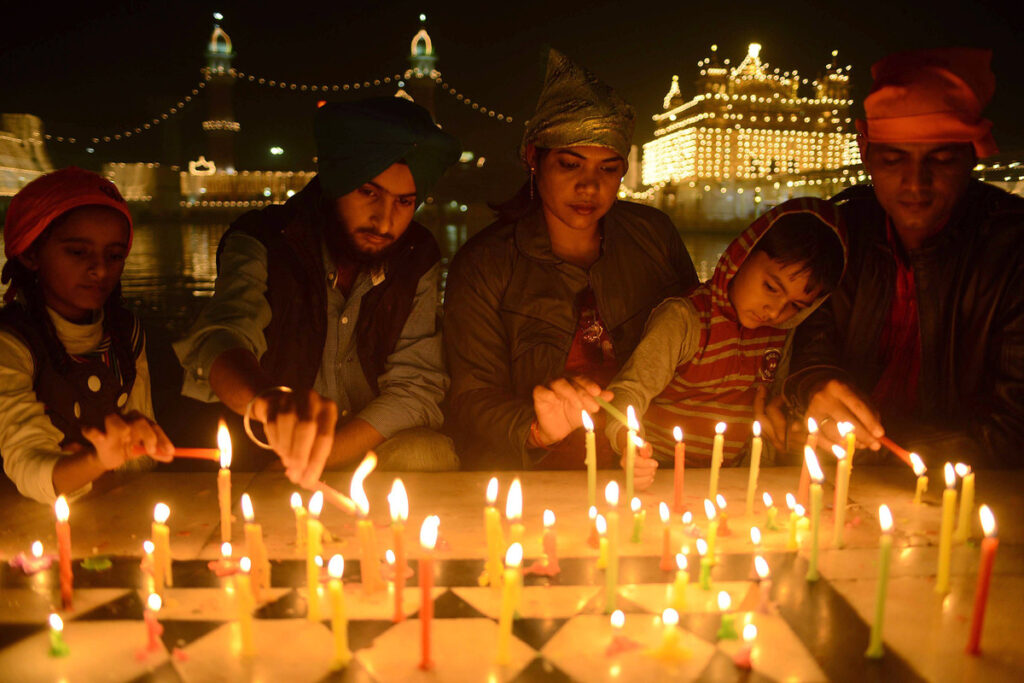
Dipalikaya celebrations by Jains
For Jains, Diwali holds a great significance. On this day, the 24th and last Tirthan-kara of Jainism (a savior and spiritual teacher of dharma), Lord Mahavir attained moksha. Moksha is the freedom from the cycle of reincarnation. It is believed that heaven and Earth were illuminated with many lamps to mark the occasion of Lord Mahavir’s enlightenment. Jains celebrate the famous festival of Diwali to worship Lord Mahavir.
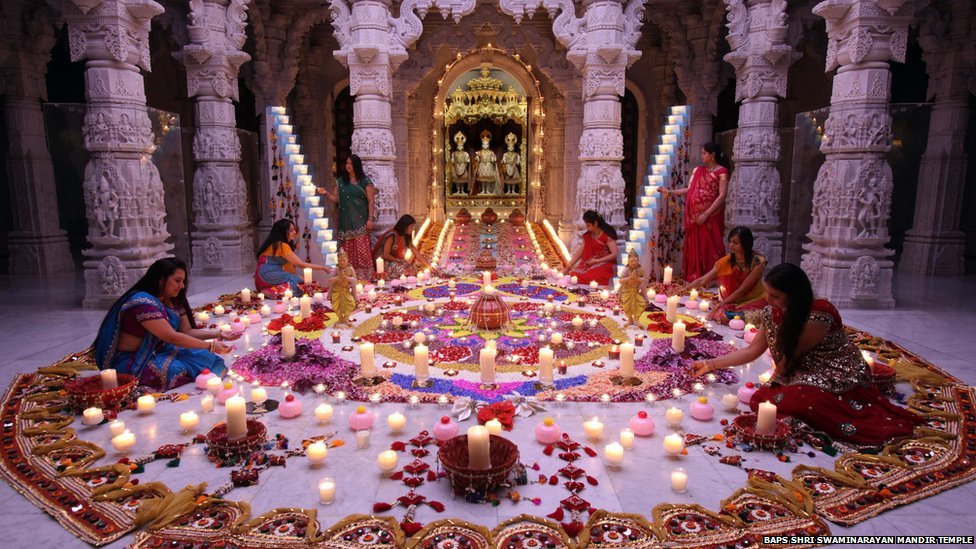
Buddhists
Some Buddhists also celebrate the festival to honour their Emperor Ashoka’s decision to convert to Buddhism and follow a path of peace and enlightenment after winning the Kalinga war. On this day, Buddhists decorate their monasteries and temples and Lord Buddha is wor-shipped.
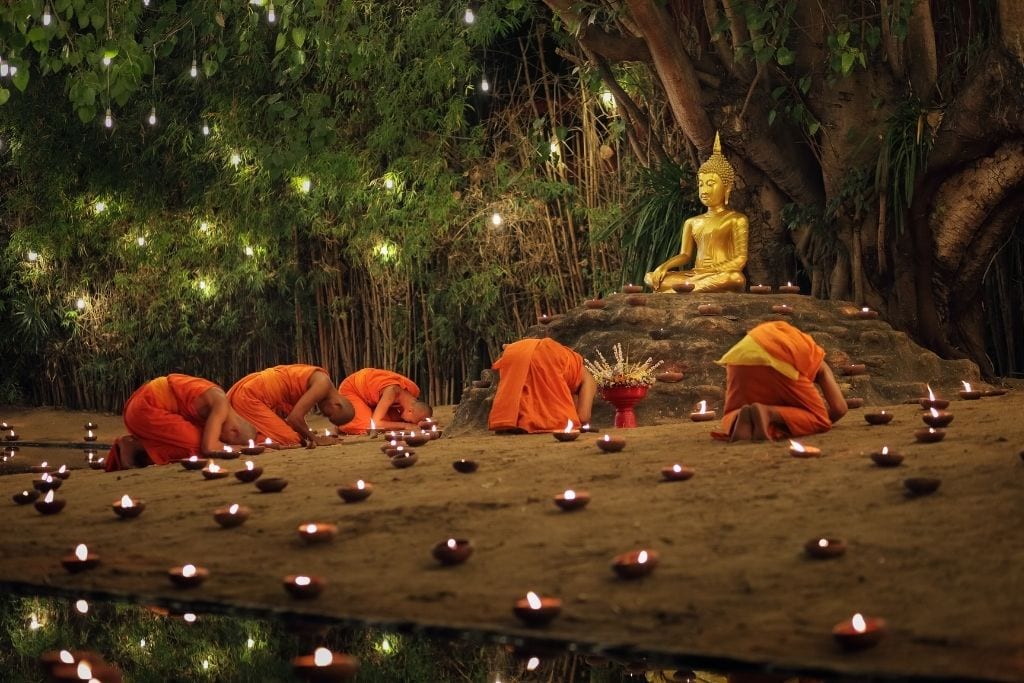
Legend Of Lord Rama Is Global
Did You Know that Ramayana is popular not only in India but in many other Asian countries? It also has many different and diverse versions and adaptations.
The ancient Indian mythological tale, Ramayana is performed all over India during the festival of Dussehra and until Diwali. Ramayana was originally written in Sanskrit by sage Valmiki. It is estimated that there are approximately 300 different versions of Ramayana. This epic story is not only popular in India but in some other Southeast Asian countries as well. Other than India, different and diverse versions of Ramayana are found in Thailand, Myanmar, Indonesia, Japan, China, Sri Lanka, Nepal, Malaysia, Laos, Cambodia, Mongolia, and China. Some of the versions in these countries are drastically different from the original.
The following illustrates the names of various versions of Ramayana that are popular outside India:

Ramakien or the Glory of Rama

Dasarata Jataka

Paumachariyam

Phra Lak Phra Ram

Yama Zatdaw

Janakiharan

Hobutsushu and Sambo-Ekotoba

Dastan-e-Ram O Sire

Reamker

Maharadia Lawana

Kakawin Ramavana

Hikayat Seri Rama
Some Interesting Facts About Diwali
- Diwali is also celebrated in Fiji, Guyana, Malaysia, Mauritius, Myanmar, Nepal, Singapore, Sri Lanka, Suriname, and Trinidad and Tobago. All these countries have a significant overseas Indian population.
- It was on the day of Diwali that the foundation stone of the Golden Temple was laid in the year 1577.
- Diwali is always celebrated in the Hindu calendar month of Kartik on a no moon night.
- It is believed that Goddess Lakshmi, who is the goddess of wealth and prosperity, was born on Diwali.
- Diwali, which is celebrated in the month of Kartik, marks the end of the harvest season in India. Farmers in India offer their harvest to Goddess Lakshmi on Diwali.
Watch full video on, The Coronation of Britain’s King Charles

